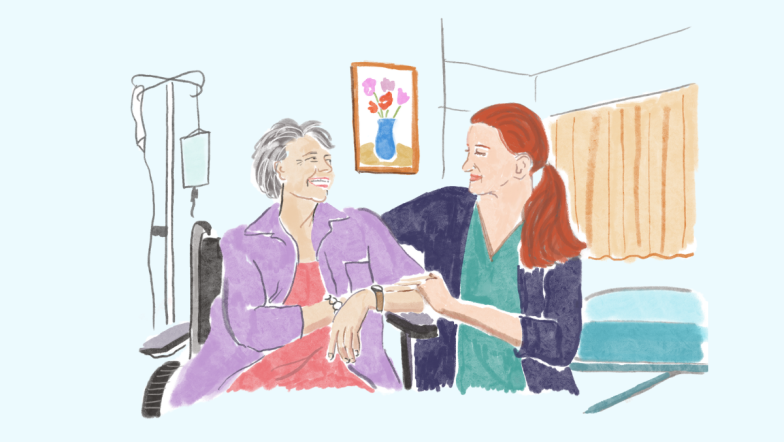Welcoming the Victorian Government’s Inquiry into support for older Victorians from migrant and refugee backgrounds
19 Aug 2022
On 2 August 2022 the Victorian Parliamentary Committee tabled the Final Report from the inquiry into support for older Victorians from migrant and refugee backgrounds. The report makes 76 recommendations that, if adopted by the Victorian Government, would ensure better access to culturally-responsive services and reduce the risk of elder abuse.
As Victoria’s population of culturally diverse older people is expected to rise, there is a growing importance to provide holistic support to Victoria’s ageing population to maximise their health and wellbeing.
The report details specific challenges faced by culturally diverse older Victorians. Social isolation was cited as a priority issue, often brought on by loss of independence and mobility, loss of friends and family, and transport or financial barriers. Factors including language proficiency, migration journey and trauma, visa status, mistrust of government, and stigma can also make it less safe for culturally diverse older Victorians to engage with services.
Informed by our extensive experience assisting older people from diverse backgrounds experiencing or at risk of elder abuse, Justice Connect’s Seniors Law program made a submission and was called on to give evidence to the Committee. 60% of all clients accessing our cohealth Health Justice Partnership were born in a country where English is not a primary language, and 43% of all clients required an interpreter. This demonstrates the need to consider the issues faced by culturally diverse older people in Victoria.
We welcome the Inquiry’s final recommendations that aim to address and prevent elder abuse, including the establishment of a state-wide strategy to address elder abuse. Many of the recommendations directly reflect our own evidence and recommendations including:
1. Investing in Health Justice Partnerships to respond to elder abuse
The Committee found that specialist elder abuse responses, such as Health Justice Partnerships (HJPs), can effectively address elder abuse because they:
- consider the needs of an older person holistically,
- provide culturally responsive and place-based services,
- build trust with clients, and
- build effective partnerships with other service providers.
Our Seniors Law program has HJPs with cohealth, Caulfield Hospital, and St Vincent’s Hospital, allowing us to deliver coordinated and sensitive multi-disciplinary responses to elder abuse, in locations that older people visit regularly. Providing interpreters at our HJPs ensures culturally diverse older people can build a trusting relationship with service providers, and fully communicate their needs.
Through this work, we are able to partner with frontline workers to help them spot the signs of elder abuse, so that they can connect people with our high-impact legal services. Partnering with local healthcare workers also means more older people can access services closer to their homes.
2. Preventing elder abuse by raising awareness of what it is, and where people can access supports
Prevention of elder abuse is key. In our submission, we explained that older people from culturally diverse backgrounds can be at increased risk of elder abuse due to difficulties of gaining appropriate information about what supports available, and the challenges of navigating complex systems. Through our work, we regularly see the benefit of preventative strategies like planning for the future and putting in place legal documents that protect older people’s choices. One of our projects, Safeguarding Now, Preventing Future Abuse, encourages people from diverse backgrounds to safeguard their financial and personal affairs through future planning.
We welcome the recommendation that the Victorian Government fund a long-term and culturally appropriate elder abuse awareness-raising campaign and education program to increase awareness of elder abuse and direct people to available support. These initiatives must be delivered in a range of languages and mediums to reach older people in a way that works for them.
3. Researching and developing a state-wide Victorian elder abuse strategy
The report found there is a shortage of research on the best ways to prevent and respond to elder abuse, limited evaluation of current programs, and gaps in the data being collected on elder abuse in culturally diverse communities.
We support the Committee’s recommendation to undertake more effective research into elder abuse prevalence and awareness in culturally diverse communities, which will enable the development of a Victorian elder abuse strategy, and the roll-out of more targeted, culturally appropriate support services.
The Victorian Government now has six months to formally respond to all of the report’s 76 recommendations.
Justice Connect will continue to call for more effective and holistic services for older people facing or experiencing elder abuse, as well as providing specialist support to address both legal and non-legal causes and consequences of elder abuse.
Read our submission

